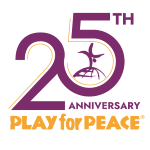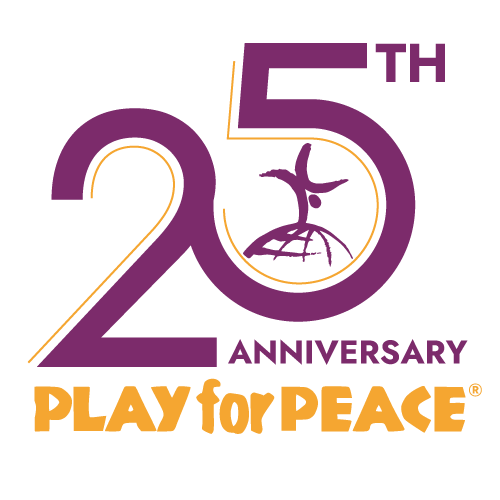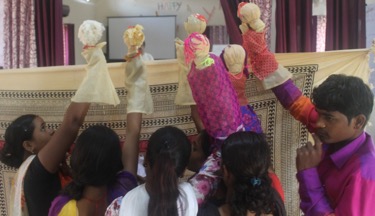“Listening to children’s imagination is important for their growth." -PFP India Trainers
How do we listen to a child? How do we empathize with a child’s longing for security, protection, and love? At Play for Peace, we teach youth leaders how to combat violence in their communities through creative learning avenues. PFP is big about inclusion- to let every child feel accepted, valued, and cared for. Behind the fun games are educational activities that have been planned, brainstormed, and simulated for youth trainers to be more effective. The PFP experience includes training activities such as puppet shows, film showing, word web, journaling, and a whole gamut of enriching, compassionate deeds. In their tireless efforts to share PFP’s role in helping communities in conflict, India’s youth trainers Swati, Ajat, Agyat, and Nikhil brought along a full-packed, four-day program during the youth leadership development on September 13-16, 2016, in Narsinghpur, India. “Participants found this very important for their work and appreciate the simplicity of the process,” said Nikhil. New leaders are being raised. Maybe Durga, Maya, Triveni, Arvind, Sanjay, Mahesh, Gomti, Yogesh, and Mamta are just plain names. But at Narsinghpur, they are being armed not with the violence that they have come to know, but with interesting things to share with other children who are hurting. “I learned that every child has the capacity and we need to recognize it,” said Arvind. The training was also a recommitment to continue with PFP.
The core values of PFP, which are inclusion and compassion for the world, were deeply inculcated through a series of reflections and journaling among participants. “We never have the opportunity to learn such interesting things,” they said. Listening to children’s need for inclusion and protection against violence was a part of the cooperative games. The whole activity gave them a different perspective about children - to see the potential in every child. Each child has a different set of values and a different kind of upbringing which contributes to his/her personality. Because each child is different, we need to listen to them with a heart. PFP educates people on violence by making communities safer through fun games. It’s good to know how a simple puppet show moved 700 children and created an impact on PFP Trainers at Narsinghpur. Right To Education (RTE) is an act of the parliament of India for free and compulsory education for children 6 years old and below.
Play for Peace reaches these children by providing a global learning experience that develops the mental, motor, and emotional faculties of the child. So how do PFP youth leaders listen to a child? How do they empathize with a child’s longing for security, protection, and love? By learning that violence experienced in childhood affects their personalities way into adulthood. Remembering their childhood made them connect with other children. Through facing their own fears in the past, they were able to teach others to do the same now. [gallery columns="1" size="large" ids="7770,7769,7768,7767,7766,7765,7764,7763,7774,7775"]



